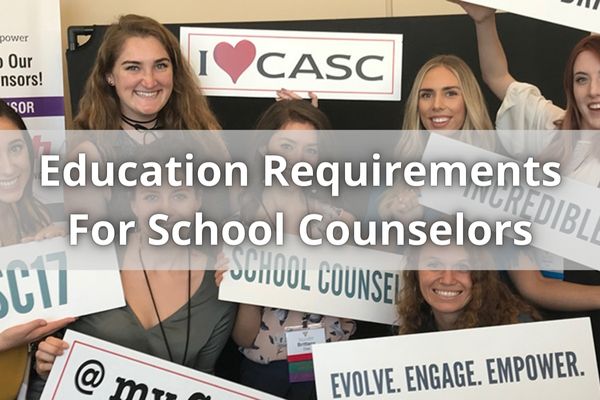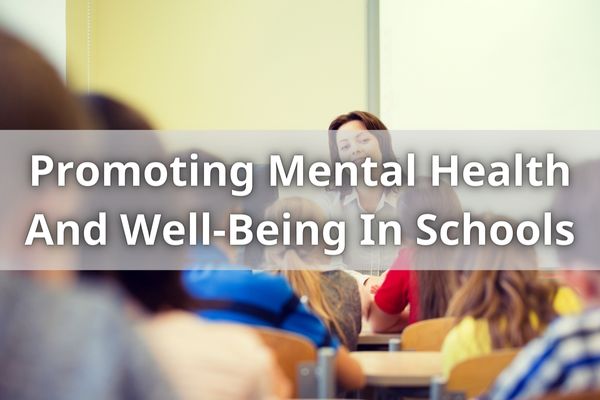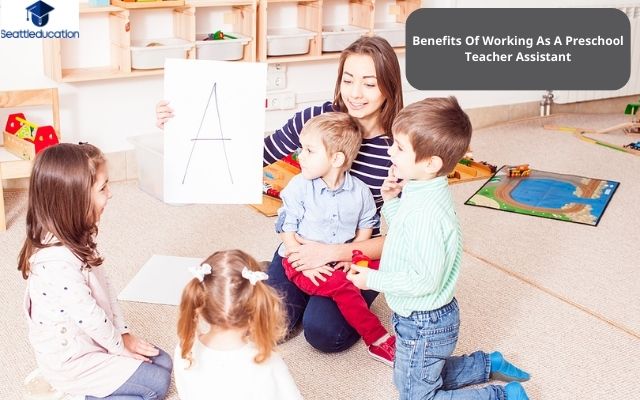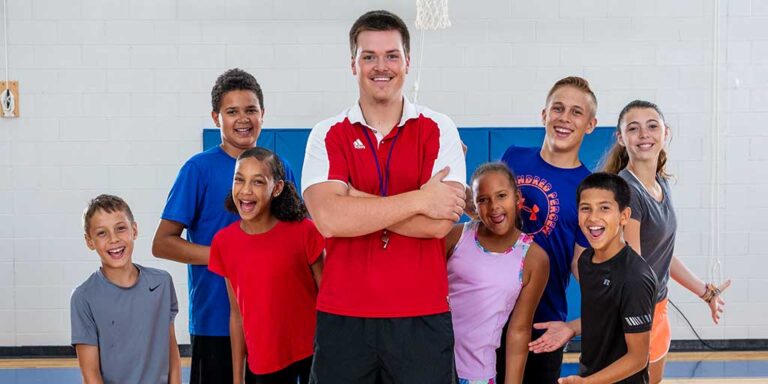School Counselor Schooling: Become A School Counselor
As a school counselor, I am aware of the value of having the appropriate training and credentials. With the information and abilities I acquire via my education, I can support students in their intellectual and personal growth.
In this article, I will discuss more specific information about school counselor schooling.
Let’s start!
Education Requirements For School Counselors

Make sure you comprehend the educational requirements for this position since you must possess the required credentials and certifications to succeed as a counselor.
A master’s degree in counseling or school counseling, which can be attained at an approved institution or university, is typically required for school counselors. This should include coursework related to mental health counseling, human growth and development, group dynamics, lifespan development, and diagnosis of emotional disorders.
In certain jurisdictions, candidates must additionally hold certification from the National Board for Certified Counselors (NBCC) and a bachelor’s degree in counseling or a closely related discipline, such as psychology, in order to be eligible for licensing.
With these prerequisites in place, you will also need to complete any additional coursework needed for school counselor licensure such as special education law and advocacy skills.
Coursework Needed For School Counselor Licensure
You must finish the required curriculum and obtain experience in order to become a licensed professional in this sector. Most school counseling licensure programs require an approved master’s degree or higher in school counseling or a related field like psychology or social work.
Coursework typically includes topics such as human growth and development, counseling theories and techniques, group dynamics and clinical practicum.
You may also need to pass a background check to become eligible for licensure.
In addition to coursework, many states also require that prospective school counselors complete an internship with a qualified supervisor prior to being granted licensure. This type of internship provides students with the opportunity to observe experienced professionals working in the school counselor role while gaining hands-on experience that can be invaluable in their future career as a school counselor.
While completing internships is not always required for licensure, it can provide aspiring counselors with added confidence and skills when entering the workforce after graduating from college.
Internships For School Counselors
Before entering the industry, internships offer a priceless opportunity to develop practical experience and confidence. Internships are a crucial element of the education process for school counselors, and many schools and institutions stipulate that a master’s degree in counseling must include a supervised internship.
During these internships, school counselors have the chance to observe experienced professionals in action as they guide students through difficult times and help them make important life decisions. They also get the opportunity to practice their own skills with real clients under supervision.
By participating in internships, school counselors develop both professionally and personally while gaining valuable experiences that can make them more attractive job candidates.
The next step for school counselors is obtaining certifications that demonstrate their expertise in the field.
Certifications For School Counselors
Obtaining certificates is a fantastic method to prove your knowledge and differentiate yourself from the competition.
It’s crucial to comprehend the numerous state-to-state standards that must be satisfied in order to be qualified for school counseling certification if you want to work as a school counselor. Some states may require licensure or additional master’s degrees in order to become certified as a school counselor. However, no matter the state-specific regulations, all potential school counselors must receive an accredited degree in counseling and fulfill any other state requirements before they can be certified.
In addition to fulfilling licensure requirements and becoming certified, there are many other benefits of gaining certifications for school counselors. Many employers prefer hiring those with professional certifications as this demonstrates an advanced understanding of counseling skills which can benefit both students and counselors alike.
Taking time to acquire certifications not only sets you apart from other applicants but it also shows dedication towards helping students succeed.
Benefits Of School Counselors For Students

Having a school counselor may be very helpful to you since they can offer direction and assistance to help you achieve your academic objectives. School counselors may represent students’ interests by assisting them in locating the services and resources that are offered by their school system or in the local community.
School counselors can help kids individually discover their strengths and limitations, create goals for academic achievement, offer support with personal concerns, or point them toward extra resources like a school social worker. Having a guidance counselor offers the following four major advantages:
- Each student can develop individualized learning plans with the help of a school counselor that take into account their particular needs and interests.
- They can assist students in developing practical objectives for themselves and in taking the required actions to reach those goals.
- When required, they provide emotional support and help with problem-solving techniques.
- They serve as mentors who allow students to explore different career paths without judgment.
Having access to a knowledgeable professional like a school counselor is incredibly beneficial for any student looking to succeed in their education journey. Through this transition into the subsequent section about the benefits of school counselors for families, it’s clear that the importance of these professionals extends beyond just individual students; they truly have the power to positively impact entire communities.
Benefits Of School Counselors For Families
School counselors provide a wealth of benefits to families and are an integral part of the high school environment. Their considerable supervised internship experience and frequent master’s degrees in counseling give them the required training to deal with students and their families.
They have the responsibility of supporting parents and guiding students as they make decisions about their educational paths. Counselors at the school serve as mentors for both parents and children, guiding them in making choices that will contribute to their success in the future. They are also available to help families navigate any issues or difficulties they may be facing within their own home life.
School counselors can help guide families through difficult conversations, give resources to those in need, and connect them with outside professionals if needed. With the support provided by school counselors, many families feel better equipped to handle whatever life throws at them in a positive way.
Impact Of School Counselors On Student Success

The impact of an experienced counselor in a student’s life can be immeasurable, offering invaluable guidance and support that can help shape their future success.
School counselors work with students to provide clinical experience, counseling play, and education requirements to increase the chances for academic success.
Additionally, they collaborate closely with families to anticipate any possible issues that could crop up throughout the academic year and plan solutions for them. This makes sure that pupils have all they need to succeed in school.
School counselors provide an important role in helping students succeed. By giving students the tools, direction, and emotional support they require to succeed, their knowledge and experience may greatly improve the lives of students.
By having access to knowledgeable professionals who understand the unique needs of each student, school counselors have become indispensable partners in promoting student success.
With their help, many students have seen improved grades, increased self-confidence, better social skills, and higher aspirations for college or career paths.
Strategies For Effective School Counseling
Having an effective counseling strategy can be instrumental in helping students reach their goals and fulfill their potential.
School counselors can use social work principles to assist students in dealing with personal, family, educational, and career issues. They must also supervise the staff and activities of the counseling department and monitor the progress of all students.
According to the Bureau of Labor Statistics, school counselors need to pass a licensing exam before they’re allowed to practice.
School counselors often work collaboratively with school faculty and staff members on student success initiatives. For example, they develop academic plans tailored for individual students or create programs that promote student engagement in learning activities.
They also provide support services to help struggling learners cope with difficult classes or personal problems that may impede their academic progress. Through these activities, school counselors contribute greatly to fostering a positive learning environment for all students.
Working With School Faculty And Staff
A wonderful strategy to guarantee children obtain the assistance they require to achieve is to collaborate with school instructors and personnel. Building connections with professors and staff is crucial for school counselors because they frequently play a key role in supplying kids with the tools they need to succeed.
In order to collaborate on initiatives that support students’ well-being, such as mentorship programs or student clubs, counselors should engage closely with school professors and staff. Additionally, in order to successfully advocate for their children when required, counselors should work to develop solid connections with school staff.
Students will have access to the help they need both within and outside of the classroom through building strong relationships between counselors, school faculty, and employees.
In the future, it will be crucial for counselors to build relationships with parents and members of the community in order to develop a comprehensive strategy for promoting student achievement.
Working With Parents And Community Members
Making connections with parents and the local community is essential to fostering an atmosphere where children may flourish. We have the chance to participate in both our local community and the school counseling profession as school counselors.
We must possess a master’s degree in counseling in order to offer families and individuals the assistance they require. Counselors also help bridge gaps between schools and their communities by providing resources and services within the area.
School counselors also work collaboratively with community partners such as social services, health care agencies, churches, etc., to ensure that students get access to all available programs and services in their areas.
By connecting with parents and community members, school counselors are better able to promote mental health and well-being in schools while fostering relationships between the school system and its surrounding environment.
We strive to create an atmosphere where students can flourish while keeping parents informed of any changes or updates happening within the district or at their child’s respective school.
Promoting Mental Health And Well-Being In Schools

By supporting mental health and well-being in your neighborhood, you may contribute to the development of an environment that is encouraging and conducive to learning for pupils. You have a significant impact on the lives of the children you interact with as a school counselor, but there are many more professionals involved when it comes to mental health problems.
Social workers, school psychologists, counselors from universities like the University of Denver, and guidance counselors all bring their expertise to bear on these situations. By collaborating with these professionals, we can make sure that students have access to the tools they require for their mental wellbeing.
You may assist establish a secure environment for both kids and teachers by getting in touch with other experts in your field and understanding how to best support your school’s mental health efforts. You can learn new techniques that can be incorporated into classroom lessons or provide mentorship programs where teachers can turn for advice.
Additionally, developing relationships between administrators, parents/caregivers and outside organizations is critical so that everyone has access to proper resources if needed. Ultimately, as a school counselor you strive to cultivate an environment where everyone feels valued and connected – one that promotes mental health and well-being within your local community.
Conclusion
I’ve discovered that school counseling is a vital and important profession. It requires education, training, certification, and internships to be successful. School counselors play an important role in helping students with their academic and social needs, as well as promoting mental health and well-being in schools.
Working with school faculty and staff, parents, and community members can help ensure success for the student body. By understanding the requirements of this profession, I’m confident that I can become an effective school counselor who can make a positive difference in my students’ lives.







